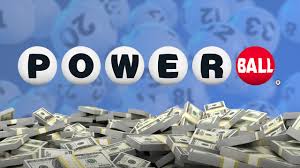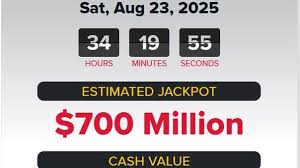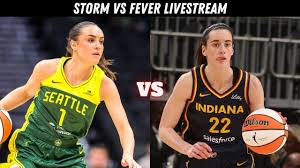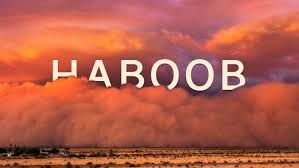
Introduction: The Lottery That Captures Dreams
Every week, millions of Americans walk into gas stations, grocery stores, or log in online to buy a Powerball ticket. For just a couple of dollars, they purchase not just a slip of paper, but a chance at unimaginable wealth — sometimes jackpots reaching billions of dollars.
Powerball has become more than just a lottery; it’s a cultural phenomenon. It inspires office pools, family rituals, heated debates about luck versus probability, and even philosophical questions about what money can — and cannot — buy.
But what exactly is Powerball? How did it begin, how does it work, and why has it gripped the imagination of an entire nation?
A Brief History of Powerball
Powerball wasn’t always the household name it is today.
- 1988: The lottery began as Lotto America, a multi-state game.
- 1992: It was rebranded as Powerball, introducing the famous two-drum system — one for white balls, one for the red “Powerball.”
- 2009: Powerball merged with Mega Millions, allowing both games to be sold in nearly all U.S. states.
- Today: Powerball is played in 45 states, Washington D.C., Puerto Rico, and the U.S. Virgin Islands.
Its expansion mirrors America’s fascination with lotteries as both entertainment and a dream of instant wealth.

How Powerball Works
The rules are simple — but the odds are astronomical.
- Players select five numbers from 1 to 69 (white balls).
- Then select one Powerball number from 1 to 26 (the red ball).
- Tickets cost $2 per play (or $3 if you add the “Power Play” multiplier).
- Drawings happen three times a week — Monday, Wednesday, and Saturday.
The Prize Tiers
- Match all 5 + Powerball → Jackpot (starting at $20 million, can reach billions).
- Match 5 without Powerball → $1 million prize.
- Smaller matches (like 3 numbers, or 2 + Powerball) → Prizes range from $4 to $50,000.
This tiered structure keeps casual players interested while dangling life-changing sums for the big winners.
Record-Breaking Jackpots
The appeal of Powerball skyrocketed when jackpots began breaking records.
- $2.04 billion (November 7, 2022): The largest lottery jackpot in history, won in California.
- $1.765 billion (October 2023): Second-largest Powerball jackpot, also in California.
- $1.586 billion (January 2016): Won by three ticket holders in California, Florida, and Tennessee.
These massive payouts create lottery frenzies, with lines wrapping around convenience stores and ticket machines selling millions in hours.
Famous Stories of Winners
The headlines often focus on the jackpots, but the stories behind the winners are just as fascinating:
- The Robinson Family (2016): One of the three families who split the $1.586 billion jackpot. They chose a lump-sum payout of $327.8 million before taxes.
- Mavis Wanczyk (2017): Won $758.7 million, at the time the largest single-ticket win. She quit her job immediately.
- Anonymous California Winner (2022): Took home the $2.04 billion jackpot, staying private — a reminder that not every winner seeks fame.
Some winners donate to charities, some invest, and sadly, others spiral into financial mismanagement. The lottery dream can be both a blessing and a curse.
The Odds: A Reality Check
Dreaming is easy. Winning is not.
- Odds of winning the jackpot: 1 in 292,201,338.
- Odds of winning $1 million (Match 5): 1 in 11,688,053.
- Odds of winning any prize: 1 in 24.9.
To put this in perspective:
- You are more likely to be struck by lightning (1 in 15,300).
- Or to be bitten by a shark (1 in 3.7 million).
Yet millions play each week because somebody does win.
The Cultural Impact of Powerball
Powerball isn’t just a lottery — it’s part of American culture.
- Office Pools: Co-workers chip in for bulk tickets, dreaming of walking out together as millionaires.
- Family Traditions: Some families play birthdays, anniversaries, or “lucky numbers.”
- Media Frenzies: When jackpots soar past $1 billion, it becomes front-page news.
The game has become a ritual of hope — a collective pause to imagine a different life.
The Psychology of Lottery Players
Why do people play, knowing the odds? Psychologists point to several factors:
- Hope: The ticket is a daydream, a small escape from routine.
- “It Could Be Me” Syndrome: Seeing others win convinces players it’s possible.
- Near Misses: Getting a few numbers right gives the illusion of being “close.”
- The American Dream: Powerball fits into the narrative of luck changing lives overnight.

Where and How to Play Powerball
- Available in most U.S. states.
- Tickets can be bought at retailers, gas stations, or online in participating states.
- Many players use Quick Pick (computer-generated numbers).
- You can add Power Play for higher non-jackpot winnings.
International Comparisons
Other countries have their big lotteries too:
- EuroMillions (Europe): Jackpots often reach €200–250 million.
- El Gordo (Spain): Famous Christmas lottery with billions in total payouts, though split among many winners.
- SuperEnalotto (Italy): Known for difficult odds but giant prizes.
Powerball, however, is unmatched in sheer scale.
Scandals, Myths, and Controversies
- The Hot Lotto Fraud (2010): A lottery official rigged the system, later caught when trying to claim a prize anonymously.
- Myths about “lucky states”: While some states see more winners (like California and Florida), that’s mainly because they sell more tickets.
- Tax Debate: Winners pay federal taxes, plus state taxes depending on where they live — often cutting payouts nearly in half.
Powerball in Pop Culture
Powerball has appeared in:
- TV shows (The Simpsons, Family Guy).
- Movies where characters dream of winning the lottery.
- Late-night jokes whenever jackpots climb into billions.
It has become shorthand for sudden, life-changing luck.
The Economics of Lotteries
- Powerball generates billions in revenue each year.
- Funds support state programs — often education, infrastructure, and social services.
- Critics argue it’s a “tax on the poor,” since lower-income households spend proportionally more on tickets.
The Future of Powerball
What’s next for America’s biggest lottery?
- Digital Expansion: More states offering online ticket sales.
- Global Pools: There have been talks of international lotteries with even bigger jackpots.
- AI and Number Predictions?: Players experiment with AI “lucky number generators,” though odds remain unchanged.
Conclusion: Luck, Dreams, and Reality
Powerball is not about probability — it’s about possibility. It captures the human desire for a different life, for the fantasy that tomorrow you could wake up and never work again.
Most won’t win, but for $2, millions keep dreaming. And maybe that’s the real prize: a weekly ritual of hope in a world that often feels unpredictable.
FAQs About Powerball
1. What is Powerball?
Powerball is a U.S. lottery game played in 45 states, D.C., Puerto Rico, and the Virgin Islands.
2. How much is a Powerball ticket?
$2 per play ($3 with Power Play).
3. What are the odds of winning?
1 in 292 million for the jackpot.
4. When are the drawings?
Monday, Wednesday, and Saturday nights.
5. What was the biggest jackpot?
$2.04 billion in November 2022 (California).
6. Do winners pay taxes?
Yes — federal and state taxes apply, reducing the final payout significantly


